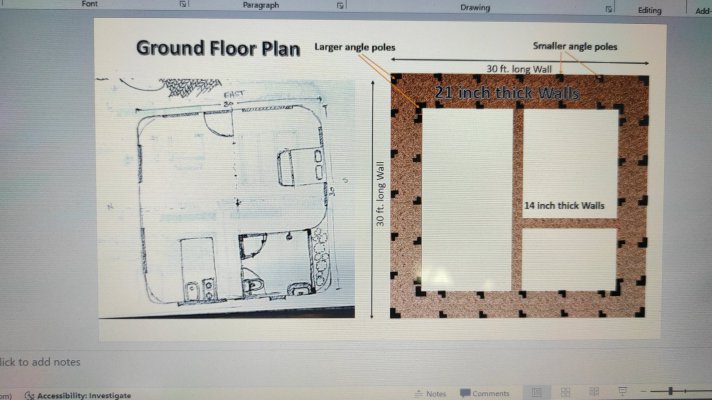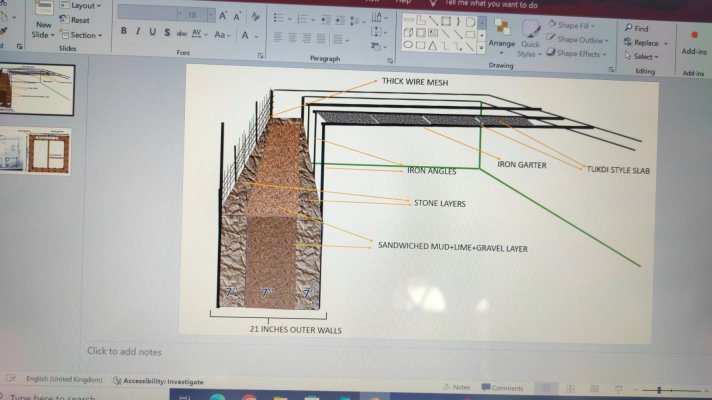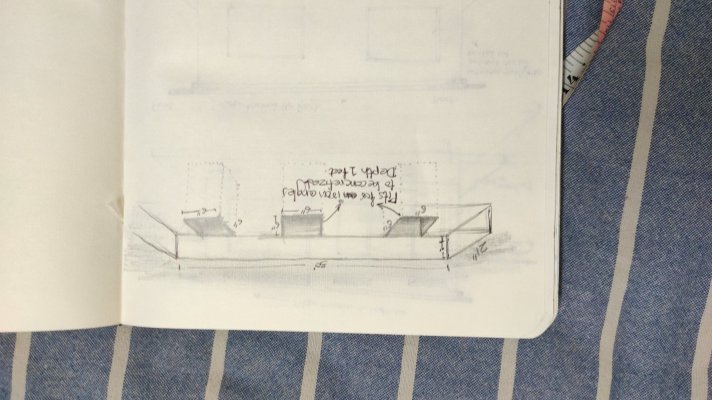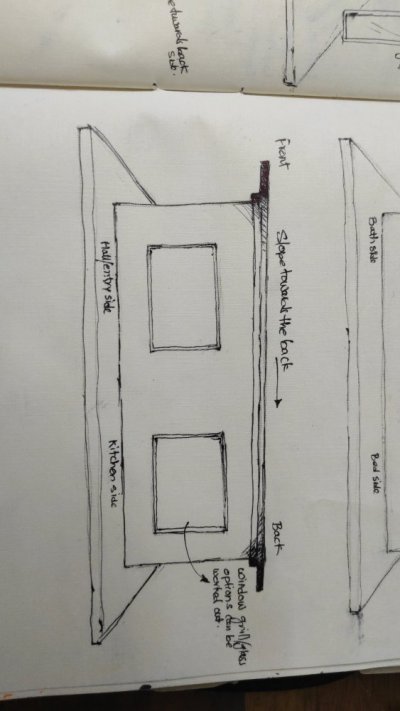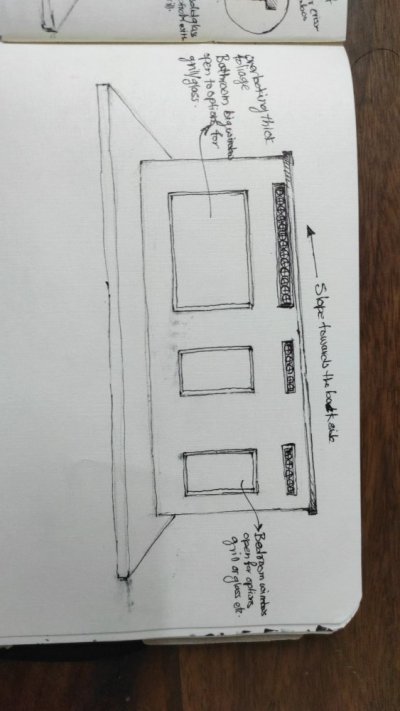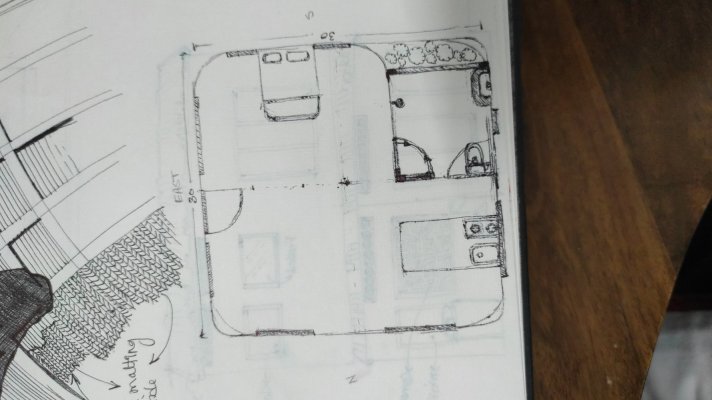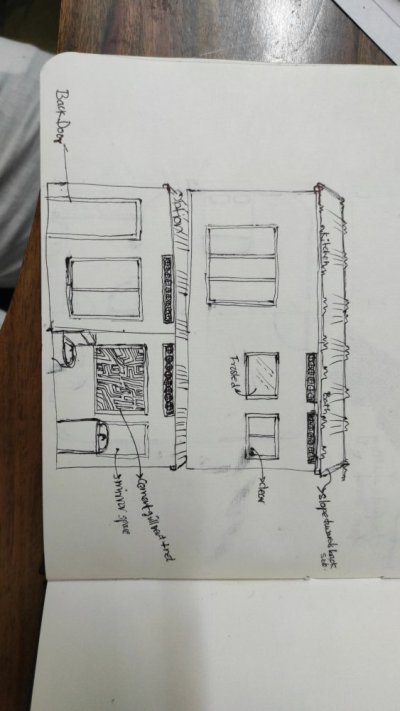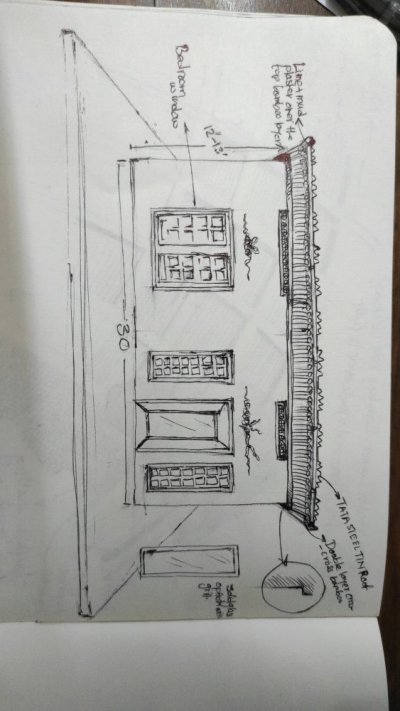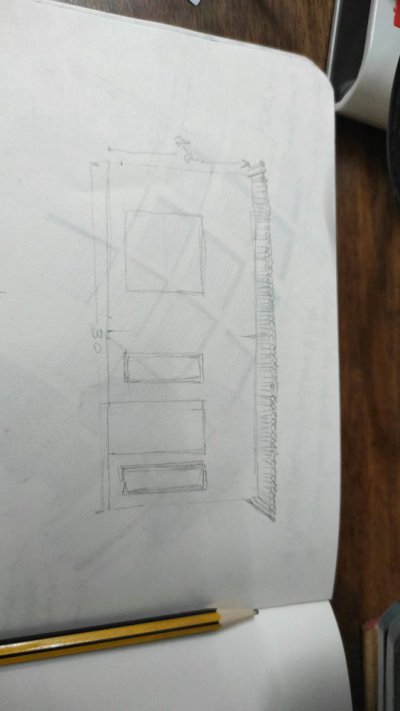You are using an out of date browser. It may not display this or other websites correctly.
You should upgrade or use an alternative browser.
You should upgrade or use an alternative browser.
BEAM Library
- Thread starter Darshan
- Start date
Dear Aoc
By my understanding lime goes stronger over the period of time by absorbing CO2 which portland cement doesnt.
we have a stones at site in abundance so planning to create a framework like gabion walls by welding the wire mesh to the iron angle posts, have stones on both outer and inner sides using lime mortar and soil from the land in between the stones rammed like in the rammed walls (see the sketch), once the desired height is achieved plaster the walls with lime and mud mortar from both inside and outside.
By my understanding lime goes stronger over the period of time by absorbing CO2 which portland cement doesnt.
we have a stones at site in abundance so planning to create a framework like gabion walls by welding the wire mesh to the iron angle posts, have stones on both outer and inner sides using lime mortar and soil from the land in between the stones rammed like in the rammed walls (see the sketch), once the desired height is achieved plaster the walls with lime and mud mortar from both inside and outside.
"By my understanding lime goes stronger over the period of time by absorbing CO2 which portland cement doesnt." - While this may be true, my understanding and experience is that Lime's final long-term strength will not come close to modern portland. There's a reason they build pillboxes and bunkers with Portland not Lime. In fact, one of Lime's advantages over portland cement is its relative SOFTNESS, as it can break / crumble / deform if the structural masonry (brick or stone) expands and contracts with moisture and temperature fluctuation. This prevents the actual masonry from having to break / crumble / deform (aka spalling) if the surrounding mortar is relatively harder than the masonry, as is the case when cement is used.Dear Aoc
By my understanding lime goes stronger over the period of time by absorbing CO2 which portland cement doesnt.
we have a stones at site in abundance so planning to create a framework like gabion walls by welding the wire mesh to the iron angle posts, have stones on both outer and inner sides using lime mortar and soil from the land in between the stones rammed like in the rammed walls (see the sketch), once the desired height is achieved plaster the walls with lime and mud mortar from both inside and outside.
See this video at the 5:00 mark for a discussion on relative compressive strengths between Lime and Portland.
Ok, so you're not going to insulate the stone walls then?
Also, it sounds like you're saying you will plaster or render the walls over and around the wire mesh of the gabion cage, so the wire gabion will finally be embedded in the plaster or render?
I've seen cases where ferrous metal wires embedded in porous, breathable, natural wall systems have rusted away within the wall (despite possibly being galvanized). See this video at the 1:55 mark:
Baling wire is often galvanized I believe. Also builders in my area have in recent years switched from using galvanized wall-ties in new builds to using stainless steel wall-ties, as the old galvanized ties are rusting away now (a few decades on).
I expect stainless steel wire cages would be more resilient, but that'll probably be quite expensive. If the gabions do rust when they're embedded in moisture-wicking, breathable lime / mud plaster or render (especially on the outside wall surface with exposure to driving rain, fog, etc.), and that wire cage is actually structural (which it sounds like it would be in your case, as you're filling gabion baskets with stone and earth, and the gabion cage is holding it all together), your walls may be at structural risk over the medium to long term.
Ohhh I didn't see your location, ok maybe you get away without the insulation. I assumed you were in the UK. I think whether the walls will be fine if / when the gabions rust away is probably dependent on how carefully you build up the masonry within the gabion. When I've built Gabions in the past, I just chucked all kinds of rubble into them and I'm like 90% sure they would have collapsed if the wire was compromised, as I hadn't carefully stacked the pieces in there.i guess the width of the walls are pretty much (21") and even the wire mesh rusts away there should be no problem..
what kind of foundation you think should be good for such thick walls?
the location is near the line of cancer, very very hot region
I think the crux of the issue is this: if the walls are structurally sound without the Gabion, then why bother with the Gabion in the first place? If the walls are NOT structurally sound without the Gabion, then your design could be at risk if the Gabion rusts away.
Yes that's correct..
No I am not building the gabion like you have explained yours.
I need the mesh as a guide and that's why don't need something very robust.
I am planning to use stones at the site and as you know they are not even as bricks so it's better I use mesh.
I was thinking of joining the stones using normal cement masonry and then render it with quicklime mortar.
No I am not building the gabion like you have explained yours.
I need the mesh as a guide and that's why don't need something very robust.
I am planning to use stones at the site and as you know they are not even as bricks so it's better I use mesh.
I was thinking of joining the stones using normal cement masonry and then render it with quicklime mortar.

